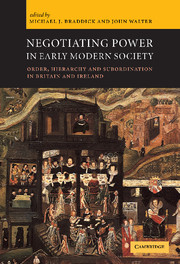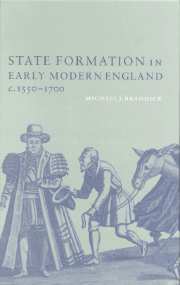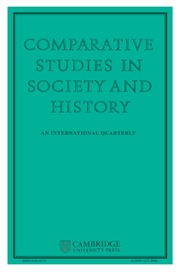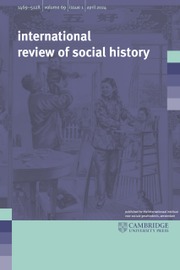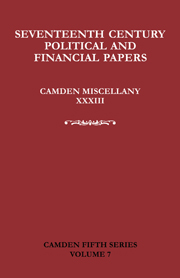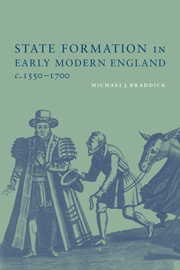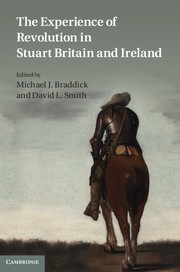Negotiating Power in Early Modern Society
Addressing the dynamics of power in early modern societies, this book challenges the existing tendency to see past societies in terms of binary oppositions - such as male/female, rich/poor, rulers/ruled - in which the disadvantaged have influence only in moments of direct confrontation. Drawing on recent social theory, the essays offer a series of micro-sociologies of power in early modern society, ranging from the politics of age, gender and class to the politics of state-building in the post-Reformation confessional state. They explore the weapons with which subordinated groups in their everyday lives could moderate the exercise of power over them. Recovering the agency of the disadvantaged, the book also explores the limits to the power that the disadvantaged could claim in the past. Its findings also have relevance for thinking about inequality in present-day societies.
- Makes new and explicit use of work on power in social theory, offering a wide breadth and range of case studies
- Includes some startlingly new and original material, for example on child abuse in the seventeenth century and on the symbolism of hunting
- Integrates traditional political and religious histories with social and cultural histories
Reviews & endorsements
'The editors' achievement is that they have assimilated all the best recent work on their theme and set out a prospectus for fruitful analysis of power relations in early modern England that leaves behind the well-worn dynamic of elite and popular cultures in favour of a highly sophisticated new model. They bring out the sheer complexity of social and political relations in England and Ireland, and provide a convincing framework for further research.' Anthony Fletcher, Institute of Historical Research, University of London
Product details
September 2001Hardback
9780521651639
328 pages
229 × 152 × 19 mm
0.61kg
Available
Table of Contents
- Introduction: grids of power: order, hierarchy and subordination in early modern society Michael J. Braddick and John Walter
- 1. Ordering the body: illegitimacy and female authority in seventeenth-century England Laura Gowing
- 2. Child sexual abuse in early modern England Martin Ingram
- 3. Sex, social relations and the law in seventeenth- and eighteenth-century London Faramerz Dabhoiwala
- 4. Exhortation and entitlement: negotiating equality in English rural communities, 1550–1650 Steve Hindle
- 5. Public transcripts, popular agency and the politics of subsistence in early modern England John Walter
- 6. 'Bragging and daring words': honour, property, and the symbolism of the hunt in Stowe, 1590–1642 Dan Beaver
- 7. Administrative performance: the representation of political authority in early modern England Michael J. Braddick
- 8. Negotiating order in early seventeenth-century Ireland Raymond Gillespie
- 9. Order, orthodoxy and resistance: the ambiguous legacy of English puritanism, or, Just how moderate was Stephen Denison? Peter Lake
- 10. Making orthodoxy in late Restoration England: the trials of Edmund Hickeringill, 1662–1710 Justin Champion and Lee McNulty.

